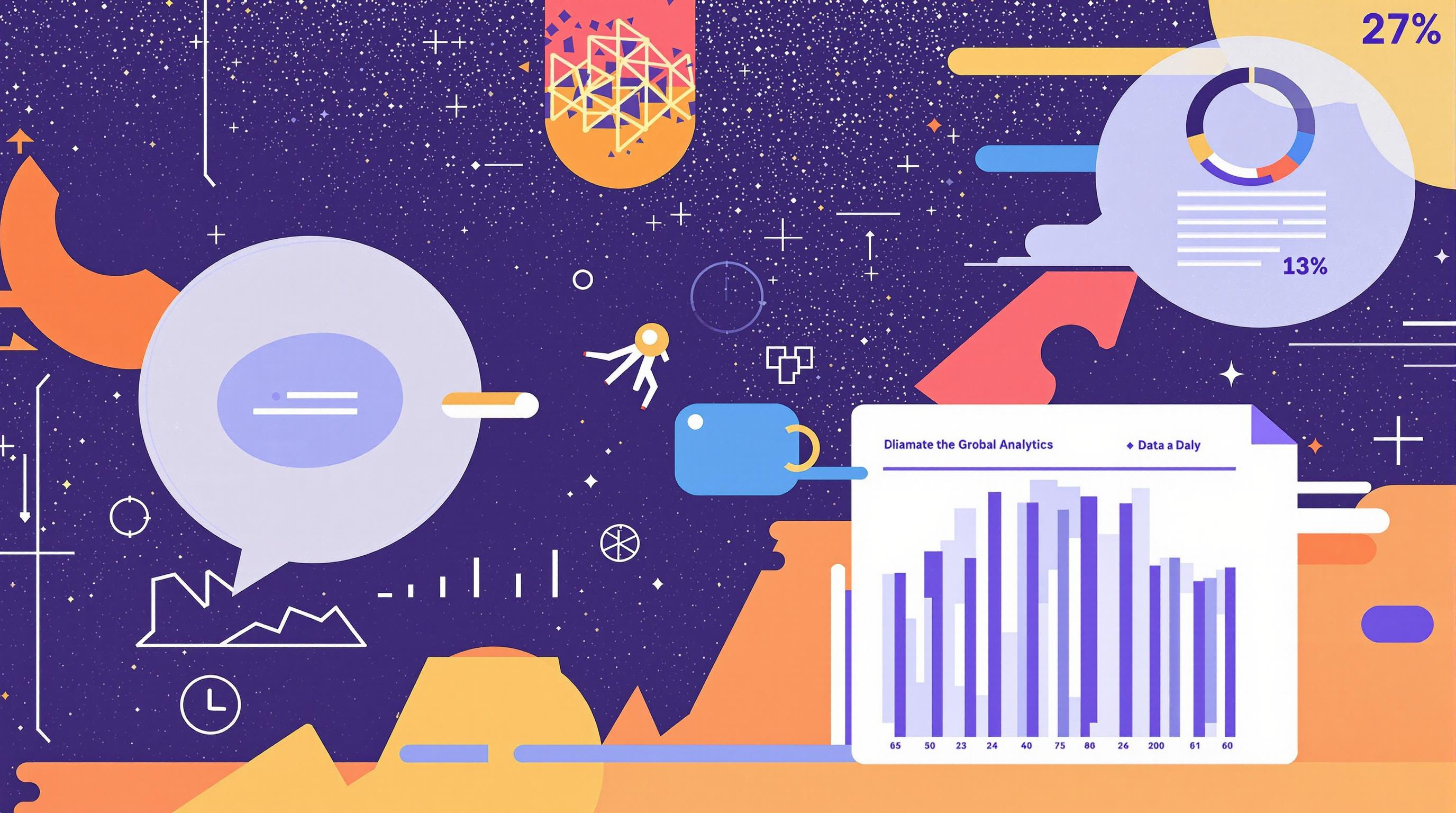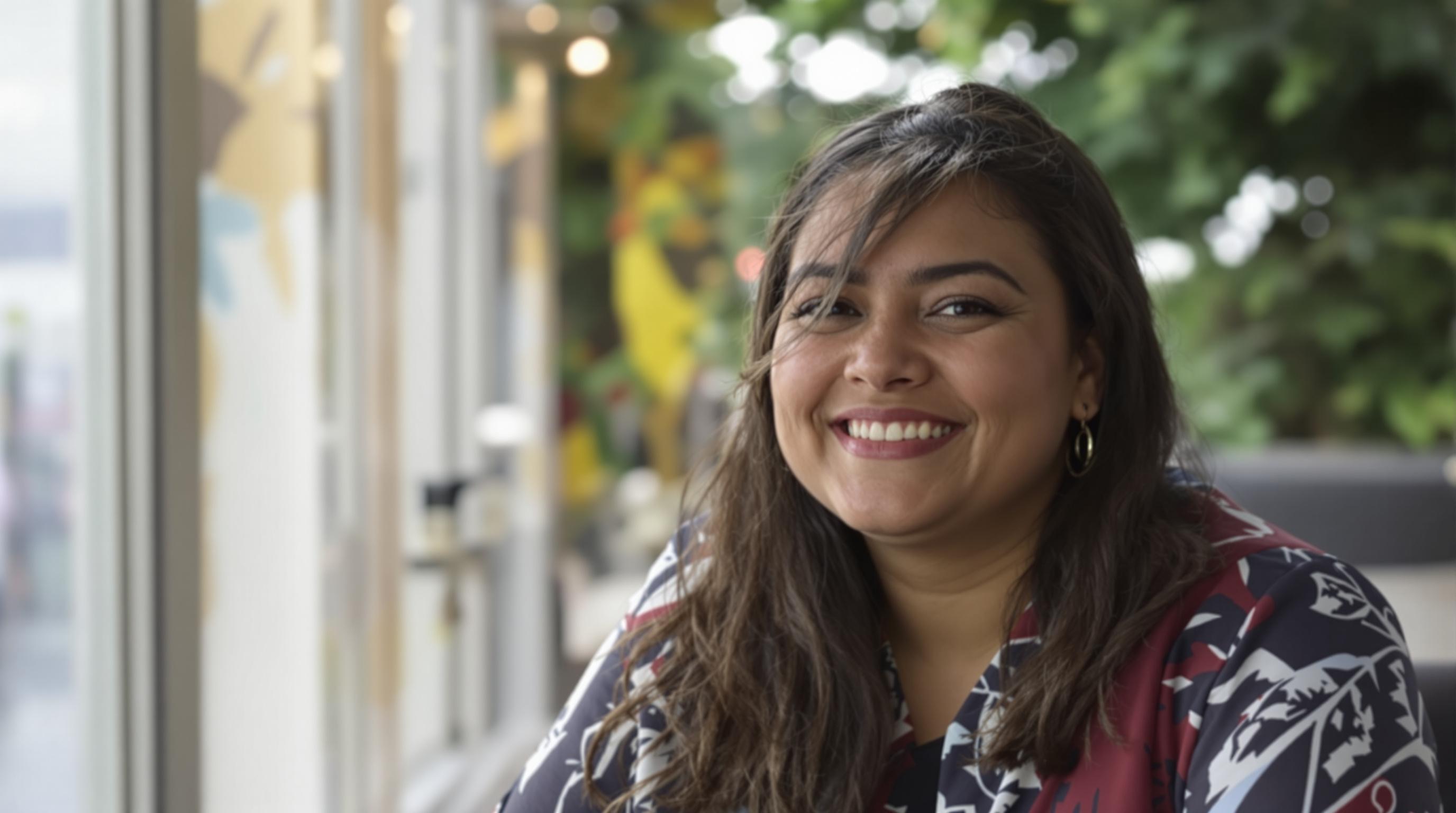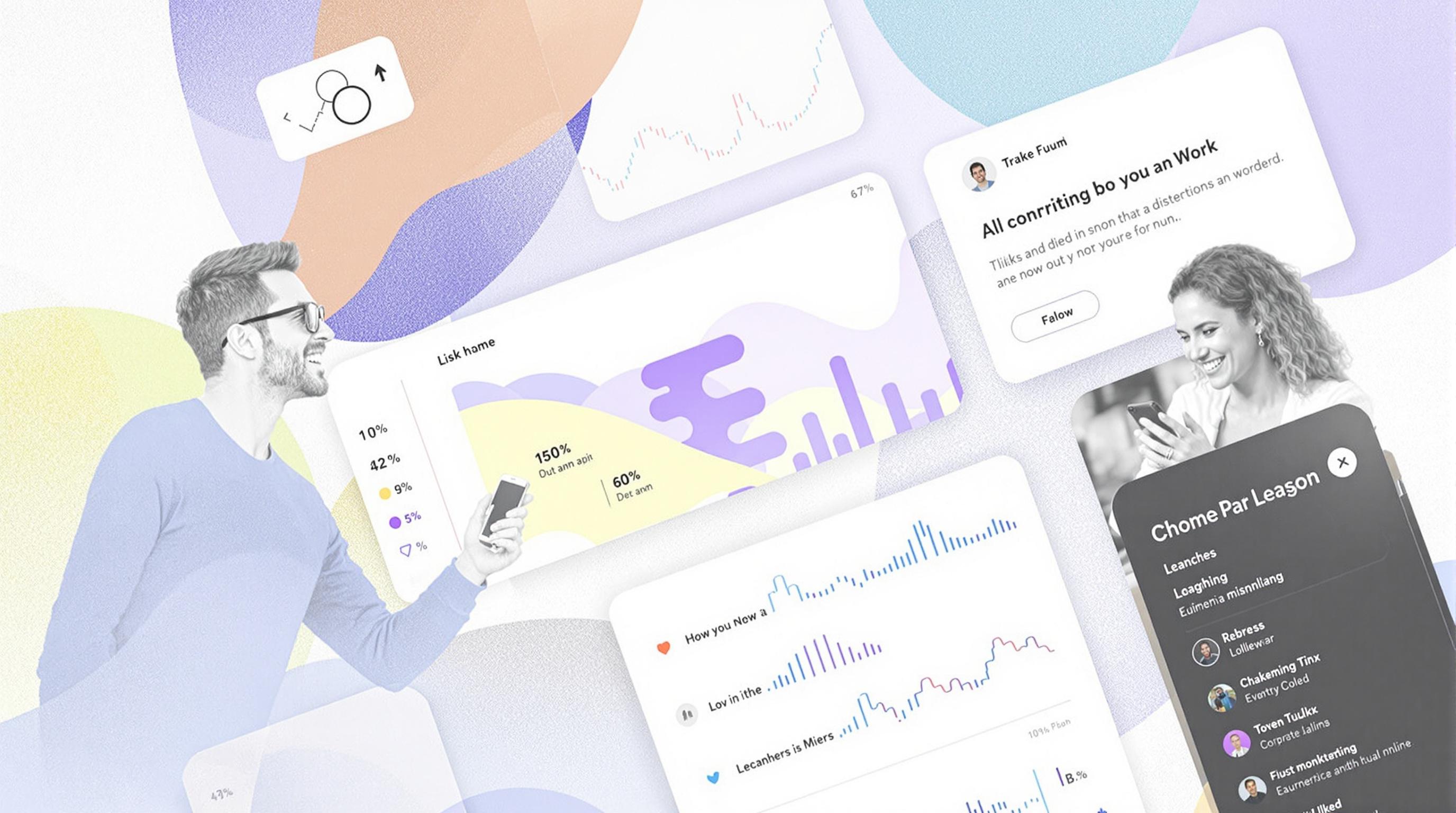Related Articles
- How Experimental MBA Concentrations Quietly Influence Corporate Culture and Decision-Making Strategies
- Top 5 Niche MBA Concentrations Gaining Momentum Since 2019 Ranked by Industry Impact and Growth
- Top 5 Smart Notebooks Released Since 2019 to Revolutionize Your MBA Networking Note-Taking and Follow-Up System
- The Untapped Role of Introversion in Building Stronger MBA Peer Networks and Authentic Industry Bonds
- How MBA Graduates Navigate Ethical Dilemmas in Emerging Markets to Influence Policy and Practice
- 7 Most Disruptive Productivity Platforms From MBA Alumni Launches Changing How Leaders Work Since 2019
12 MBA Alumni Who Used Data Analytics to Create High-Impact Social Ventures and Drive Global Change
12 MBA Alumni Who Used Data Analytics to Create High-Impact Social Ventures and Drive Global Change
12 MBA Alumni Who Used Data Analytics to Create High-Impact Social Ventures and Drive Global Change
In an era marked by rapid technological advancement, MBA graduates are increasingly leveraging data analytics to design solutions that address some of the world’s most pressing social challenges. From healthcare to education and environmental sustainability, these entrepreneurs transform raw data into actionable insights that fuel impactful ventures. Here we explore twelve inspiring MBA alumni who have harnessed data analytics to create high-impact social ventures and drive meaningful global change.
Data analytics plays a pivotal role by providing these leaders with the ability to identify patterns, optimize resource allocation, and measure the real-world impact of their initiatives. Their ventures often blend business acumen with a deep commitment to social good, illustrating how powerful data-driven approaches can be when aligned with a sense of purpose.
Through their innovative efforts, these alumni demonstrate the promise of combining analytic rigor with social entrepreneurship, inspiring a new generation of business leaders to pursue ventures that benefit both people and the planet.
1. Jane Lee – Empowering Rural Healthcare through Predictive Analytics
Jane Lee, an MBA graduate from Stanford GSB, founded HealthInsight, a social venture focused on improving rural healthcare delivery in Southeast Asia. By utilizing predictive analytics on health and demographic data, Jane’s team identifies communities at high risk for preventable diseases.
HealthInsight deploys targeted interventions such as mobile clinics and educational outreach where they matter most, guided by data-driven forecasts. This approach has boosted early diagnosis rates by 40% in pilot regions, reducing disease burden significantly.
Jane credits her data analytics expertise, gained during her MBA, for enabling her to optimize operations and scale the venture efficiently. HealthInsight’s success underscores how data can be harnessed to save lives and enhance quality of care in underserved areas.
2. Carlos Mendez – Advancing Educational Equity Using Big Data
Carlos Mendez, a Harvard Business School alumnus, launched EduBridge, which uses big data analytics to close gaps in educational outcomes for marginalized communities. By analyzing student performance, socioeconomic factors, and resource availability, EduBridge customizes learning programs that adapt to individual needs.
The venture also provides actionable insights to school administrators to improve infrastructure and teacher training. Using this data-driven model, schools partnering with EduBridge have recorded a 25% improvement in graduation rates over three years.
Carlos's blend of business strategy and analytics knows no bounds — his venture highlights how targeted data usage can democratize education and unlock human potential on a large scale.
3. Amina Yusuf – Combating Food Insecurity Through Supply Chain Analytics
Amina Yusuf, a Wharton MBA alumna, co-founded FoodChain Solutions to address food insecurity in East Africa by optimizing agricultural supply chains. Leveraging real-time analytics on crop yields, weather patterns, and market trends, FoodChain reduces waste and improves distribution efficiency.
This data-centric approach allows farmers to make informed planting decisions and helps NGOs allocate food aid more effectively. Since inception, FoodChain has reduced post-harvest losses by 30% and improved food availability in vulnerable regions.
Amina’s venture exemplifies the transformative impact of combining data analytics with sustainable agriculture, contributing meaningfully to global food security goals.
4. Raj Patel – Enhancing Financial Inclusion with Advanced Analytics
Raj Patel, a London Business School graduate, launched FinAccess, a fintech social enterprise aimed at increasing financial inclusion in underbanked populations via analytics-based credit scoring models. By analyzing alternative data such as mobile phone usage and utility payments, FinAccess provides microloans to individuals otherwise excluded from formal banking.
The venture has empowered over 200,000 people across India and Africa, boosting entrepreneurship and economic resilience. Raj’s leadership showcases how insightful data use can dismantle barriers and enable equitable access to financial services worldwide.
FinAccess’s success demonstrates the ability of analytics-driven innovative finance to foster inclusive growth and reduce poverty.
5. Sophia Nguyen – Tracking Environmental Impact with IoT and Analytics
Sophia Nguyen, an MIT Sloan MBA alumnus, spearheads EcoSense, a venture monitoring environmental impact through IoT sensors combined with big data analytics. Focused on deforestation and pollution monitoring in the Amazon rainforest, EcoSense provides governments and NGOs actionable insights to enforce conservation policies.
By analyzing terrain changes and pollutant levels in real-time, EcoSense has enhanced transparency and accountability. This data-driven approach helps mitigate environmental degradation and supports global sustainability efforts.
Sophia’s work exemplifies the growing role of data analytics in environmental stewardship and combating climate change.
6. David Kim – Improving Disaster Response Through Geospatial Analytics
David Kim, an INSEAD MBA graduate, co-founded CrisisMap, a platform utilizing geospatial analytics and social media data to enhance disaster response efforts globally. During natural disasters, CrisisMap aggregates real-time data to identify affected populations, resource needs, and safe zones.
This enables relief organizations to deploy aid swiftly and efficiently. CrisisMap’s technology proved crucial during recent hurricanes and earthquakes, accelerating rescue operations and minimizing casualties.
David’s venture highlights how combining data analytics with innovative technologies can save lives and improve humanitarian outcomes.
7. Laura Martinez – Driving Gender Equality with Workforce Analytics
Laura Martinez, an MBA graduate from Chicago Booth, created GenderLens, a data analytics platform that helps companies identify and reduce gender disparities in hiring, pay, and promotions. By analyzing HR data and employee feedback, GenderLens offers actionable recommendations to foster workplace equality.
Numerous multinational corporations have adopted GenderLens to improve diversity and inclusion, resulting in measurable advances in gender parity. Laura’s venture underscores the power of data to promote social justice within corporate environments.
Her approach illustrates how analytics not only supports fairness but also drives better business outcomes through inclusive work cultures.
8. Amir Hassan – Leveraging Data for Clean Water Access
Amir Hassan, a Columbia Business School alumnus, founded AquaClear, focused on expanding clean water access in underserved communities through data-driven infrastructure planning. AquaClear employs data analytics to map water quality, supply chains, and demand patterns to optimize well placements and maintenance schedules.
Since its launch, AquaClear has implemented sustainable water systems in dozens of villages across South Asia and Africa, improving health and livelihoods. Amir’s venture embodies how analytical insights can enhance the scalability and durability of essential services.
This data-centric strategy demonstrates an effective fusion of entrepreneurship and social impact in the water sector.
9. Maria Johnson – Enhancing Mental Health Services via Data Science
Maria Johnson, an MBA graduate from Kellogg, developed MindPath, a mental health platform that uses machine learning analytics to personalize treatment plans for patients. MindPath integrates clinical data, patient-reported outcomes, and behavioral indicators to recommend optimized care pathways.
MindPath collaborates with hospitals and clinics to improve patient adherence and treatment success, showing a 15% increase in recovery rates in pilot programs. Maria’s initiative highlights the promise of data analytics to transform mental health care delivery.
Her work bridges technology and compassion, illustrating innovative approaches to critical social issues.
10. Leila Ahmed – Promoting Renewable Energy through Predictive Analytics
Leila Ahmed, a Yale SOM MBA alumna, leads GreenGrid, a social enterprise harnessing predictive analytics to optimize renewable energy adoption in developing countries. GreenGrid analyzes energy consumption patterns, weather forecasts, and infrastructure data to design efficient solar microgrid systems.
This tailored approach reduces costs and maximizes energy access for remote communities. Leila’s venture has successfully implemented over 50 solar microgrids, powering schools, clinics, and homes sustainably.
GreenGrid serves as a prime example of how data analytics can accelerate the transition to clean energy, contributing to global climate action.
Sources:
- Stanford Graduate School of Business Alumni Impact Reports
- Harvard Business Review: Data Analytics in Social Innovation (2023)
- Wharton Social Impact Initiative Publications
- MIT Sloan Innovation for Social Impact Program
- INSEAD Global Social Entrepreneurship Review
- Columbia Business School Center for Sustainable Enterprise
- Kellogg Social Impact Network Newsletter
- Yale SOM Environmental and Social Initiatives Annual Report




